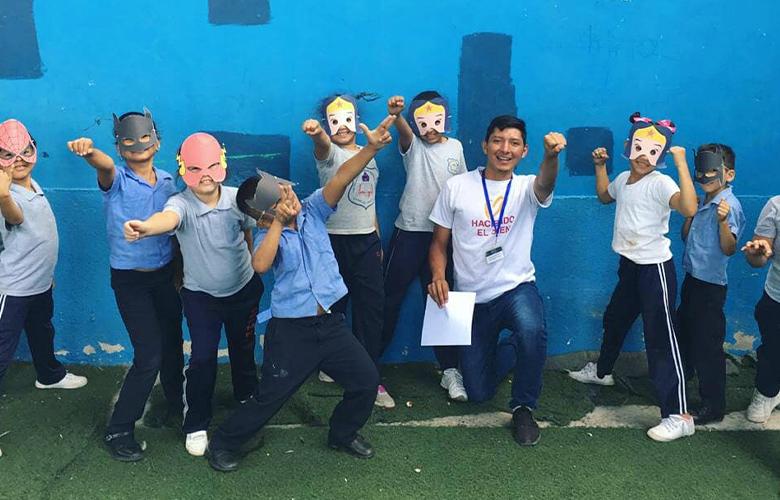
I feel a close connection to Honduras. My work in international development started there, and it has kept bringing me back. Honduras is often known for its large youth population (42%)1 and for its high rates of violence.2 However, my experience there has given me a different perspective—one of creative, hardworking, and resilient individuals.
On my last trip in October, I met with Pedro Velasquez, a representative from Jóvenes METAS (JM), a youth organization established during EDC’s METAS Project in Honduras, which promoted youth leadership among project’s graduates. I was quite impressed to see how much he had grown, both personally and professionally.
Pedro was a participant in METAS’s Life Skills Program and Basic Labor Competencies Program (BLCP), before he became a JM leader. Along with other JM members, he coordinated volunteer campaigns and represented the organization in local and national events. Then, looking for more opportunities to grow and to serve his community, he joined the Good Deeds Campaign to further promote volunteerism in Honduras.
On the professional side, Pedro’s interests, innate facilitation abilities, and training experience led him to be selected as a facilitator at the Empleando Futuros (EF) Project, where EDC was a subcontractor for the Competencies Route. At EF, Pedro completed a rigorous curriculum training and then guided youth groups as part of the project’s Training for Employment.
Just like Pedro and his journey of growth, EDC staff also continue to learn and build on our previous work in Honduras, to adapt and to innovate. For example, the EF Project included an innovative approach for mentoring in Honduras, which EDC co-designed, using it as the hinge among all training components.
Mentoring reinforced the key elements of the Life Skills and BLCP Programs, such as setting expectations, identifying youth needs, and creating an action plan for youth to complete their training. Moreover, since mentors from the community led the program, mentoring provided youth with a safe learning space and created a platform to discuss second chances.
As with EDC’s innovative mentoring approach for EF, we look forward to continuing to support the growth of the youth workforce field in Honduras.
| Cecilia La Torre Ramirez is an international project associate at EDC. She provides technical assistance and operational support to projects in Latin America and Africa. |
1Youth aged 10–29 years old. Government of Honduras, National Statistics Institute – INE. (2013) National population and housing census. Retrieved from http://170.238.108.227/binhnd/RpWebEngine.exe/Portal?BASE=CPVHND2013NAC&lang=ESP
2The homicide rate in Honduras is 41.70, that is, 42 homicides per 100,000 inhabitants. Honduras is one of the top 10 countries in the world with this measurement. Global Study on Homicide, Statistics and Data. (2017). UNODC. Retrieved February 6, 2020, from https://dataunodc.un.org/GSH_app


Comments
Add new comment